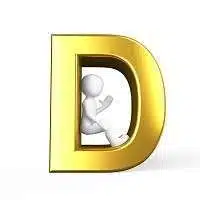
Grammatical Terms are difficult to understand but we are giving such usage grammar that will clarify many of your doubts like grammer or grammar because this is a complete grammar list of items.
Glossary of Grammatical Terms
1.Declarative sentence. A sentence in the form of a statement (in contrast to a command, a question, or an exclamation).
2. Deep structure. A term from the transformational generative grammar that refers to the underlying semantic and syntactic relationships of the sentence, in contrast to surface structure, which is the sentence as it is actually written or spoken.
3. Definite article. The determiner the, which generally marks a specific or previously mentioned noun: “the man on the corner.”
4. Degree. The variations in adjectives that indicate the simple quality of a noun, or positive degree (“Bill is a big boy”); its comparison to another, the comparative degree (“Bill is bi ‘ ‘er than Tim”); or to two or more, the superlative degree (“Bill is the biggest person in the whole class”). Certain adverbs also have degree variations, usually designated by more and most.
5. Demonstrative pronoun. The pronouns this (plural these) and that (plural those), which function as nominal substitutes and as determiners. They include the feature of proximity: near (this, these); distant (that, those).
6. Dependent clause. A clause that functions as an adverbial, adjectival, nominal, or sentence modifier (in contrast to an independent, or main, clause).
7. Derivational affix. A morpheme that is added to a form-class word, either to change its class (friend -4 friendly; act —action) or to change its meaning (legal –illegal; boy -4 boyhoods).
8. Determiner. One of the structure-class words, a marker of nouns. Deter-miners include articles (a the); possessive nouns and pronouns (e.g., Chuck’s, his, my); demonstrative pronouns (this, that); quantifiers (e.g., many, several); indefinite pronouns (e.g., each, every); and numbers.
9. Dialect.The shared linguistic features of a group of people, often one from a particular region or of a particular ethnic or social background.
10. Direct address. See Vocative.
11. Direct object. A nominal slot in the predicate of the transitive sentence patterns. The direct object names the objective or goal or the receiver” of the verb’s action: “We ate the peanuts”; “The boy hit the ball; I enjoy playing chess.”
12. Do support. The addition of the “stand-in auxiliary” do to a verb string that has no other auxiliary. The question, the negative, and the emphatic trans-formations all require an auxiliary. Do also substitutes for a repeated verb phrase in compound sentences: “Bryan liked the movie, and I did too.”
13. Dynamic.Words that exhibit features related to qualities capable of change. Dynamic verbs can combine with the progressive aspect, be + -ing: “I am leaving now”; dynamic adjectives can follow the progressive form of being; “He is being silly.” See also Stative.